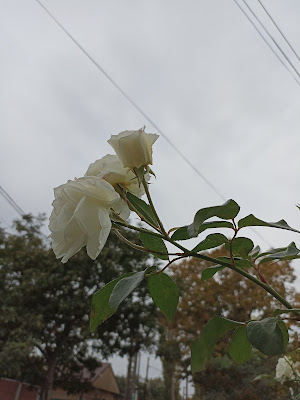Iulian Ciocan [Moldova]
Do you see your work as fitting into the traditions of European fiction--or indeed any national or regional tradition?
It is hard for me to say to what extent my writing fits into a literary tradition. What I feel whenever I conceive of a narrative, however, is that I am representative of Eastern Europe and cannot imagine my characters except as projections of the sufferings, frustrations, obsessions and quirks that throng this space. And whereas many Western writers have described the dangers posed to democratic society by eccentric, unhinged individuals (a theme tackled by John Fowles as long ago as The Collector), the world I create is one in which an imperfect social system infiltrates the everyday and eats away at man's innermost self. Consequently, you might say that, strictly speaking, I am part of a trend in Eastern European literature whose most noteworthy proponents are Victor Erofeyev, a Russian, and Milan Kundera, a Czech. As far as narrative technique goes, I try to write a prose that is compact and without any superfluous elements, in which dialogue drives the action forward and the narrators always feel a closeness to and compassion for the dramas of the characters, a compassion whose obverse is often irony.
Are there any exciting trends, movement, or schools in contemporary Moldovan fiction? Who do you feel are the overlooked contemporary authors writing in Moldova who should be more widely read and translated?
After two hundred years during which Moldova was first a cultural periphery of tsarist Russia, then a backwater of Greater Romania, then a dilapidated outlying district of the Soviet empire, Moldovan (Bessarabian) prose is only now entering a period of convalescence and aesthetic restructuring. One of the major Moldovan novels of the last few years is by octogenarian writer Aureliu Busuioc. It is a panoramic novel in which the region's tragic history is viewed from the perspective of a KGB agent who is gnawed by doubts and existential dilemmas. Among the younger writers I would mention Vasile Gârneţ, who heralded the arrival of Moldovan experimental prose in a novel published in 1988, and Grigore Chiper, who writes a prose of the everyday that is consciously fragmentary. Otherwise, Moldovan prose today contains all kinds of stylistic reminiscences of the past—the early-twentieth-century Romanian idyllic-nationalist school, socialist realism, minimalism, postmodernism, neo-realism—but most of the time a precarious grounding in literary theory does not allow the coagulation of unitary, well-constructed texts. On the other hand, interesting motifs and subjects abound in the reality of Moldova today. There is no reason for writers to seek them elsewhere. We could even start exporting them.
Who are the contemporary European writers from other countries that are writing compelling fiction?
There have always been very many good writers in Europe, and there still are today. It is a different matter entirely that not all of them are well known. If I have to pick out a few names, then these are first that come to mind: Victor Erofeyev, whose short stories are hallucinatory incursions into everyday life in Russia, projected against the backdrop of Russian history, culture and politics; Dina Rubina, another explorer of Russian everyday life; Scottish writer Alasdair Gray, with his memorable "conqueror" of London, Kelvin Walker; Danish writer Leif Panduro, with his satires brimming with grotesqueries and caustic wit; Dutch writer Michael Faber, with his novel Under the Skin; Romanian writer Petru Cimpoeşu, an author of European stature, who in one novel crams an entire country into a single block of flats; and Ukrainian writer Yuri Andrukhovych, a magician of the unexpected.
Are there enough publishing outlets in Moldova for contemporary fiction? Is there a market for literary fiction in Moldova?
Moldova is not just a small country but, alas, the poorest country in Europe today. As a result, people’s purchasing power and their immediate necessities do not encourage sales of fiction. Nevertheless, in the centre of Chisinau there is a huge bookshop where the elite reading public can find a whole host of contemporary authors from all over the world. But, I repeat, literature does not sell very well. This is why the main Moldovan publishing houses, ARC and Cartier, have long since been forced to penetrate the market in neighboring Romania.
Do you want your work to be translated? Why or why not? Given a choice, would you prefer a faithful, literal translation of your work or an interpretive re-imagining of it? Why?
I have never written prose only for my compatriots. Even before my work was translated for the first time, I used to imagine a foreign reader, to whom I would attempt to say something essential about this part of the world where I was born. Because, in spite of the social, economic, and political differences, there are invisible threads that link us together, wherever and whenever we might live. I would like to believe that the narrative worlds I invent are distorting mirrors in which the other can be discovered. There are moments when the translator needs inspiration and imagination, when a faithful translation is impossible or inopportune. What is important is that the meaning should not suffer.
Abonați-vă la:
Postare comentarii (Atom)
-
*** Da…a fost copil si Lenin… Da…a fost si el scolar… Si-n ghiozdanul lui pe vremuri A purtat abecedar! A rostit cuvintul mama Si ...
-
xxx Precum un copil avortat Deschid Ușile necunoscuților Ca să-mi caut Amintiri amorțite Le deschid și le închid amintiri amorțite u...


E interesant interviul, cu toate ca lista cu scriitori basarabeni ce merita sa fie cunoscuti in Occident ar putea fi mai lunga. Eu cred ca in aceasta lista ar mai trebui sa incapa Vladimir Besleaga, Sandu Vakuloski, Stefan Bastovoi, Vlad Iovita< Anatol Moraru sau Andrei Burac.
RăspundețiȘtergereCe conteaza?!
RăspundețiȘtergere